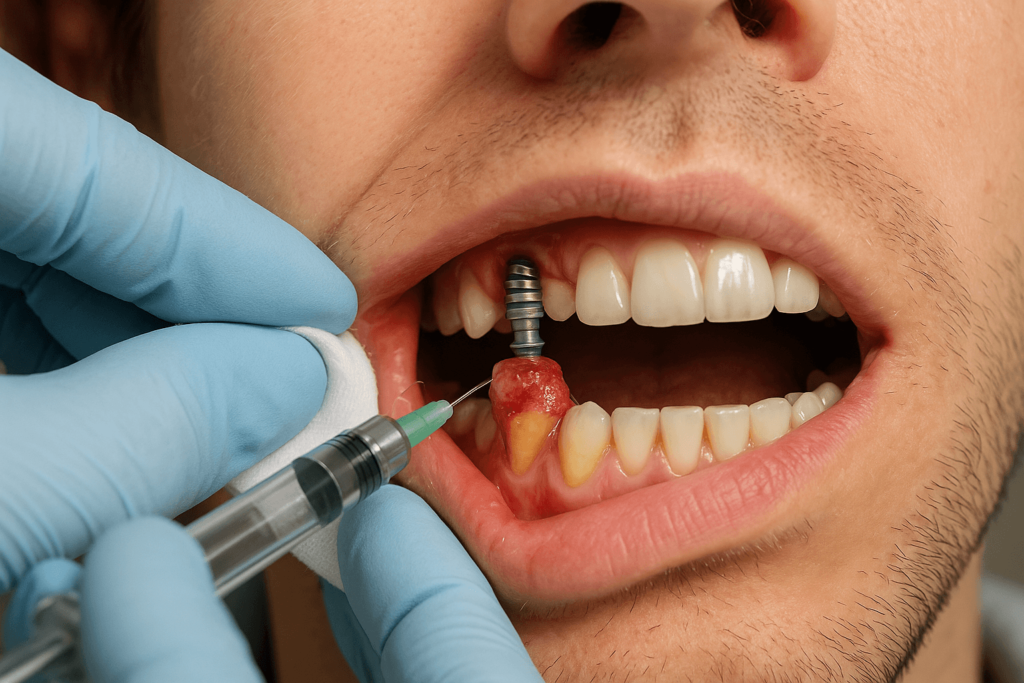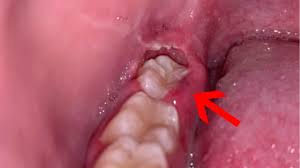
Your teeth are essential for a healthy life, and taking proper care of them is crucial, especially as an adult. The enamel, a vital and tough layer that protects your teeth, can weaken over time, leaving them vulnerable to decay. Once enamel is gone, it cannot regenerate, making it important to preserve its health for the future. By focusing on better habits now, such as avoiding acidic foods, practicing good oral hygiene, and eating enamel-strengthening foods, you can actively work on strengthening your teeth and keeping your smile strong for years to come.
What Is Tooth Enamel?
Enamel is the thin, outer layer of your teeth that acts as a barrier against physical and chemical damage. Known as the hardest substance in the body, it’s even stronger and tougher than bone. This white surface of your tooth provides strength and protection to its inner, more vulnerable parts. According to the American Dental Association, enamel is made up of 96% minerals, making it incredibly durable. However, daily habits, such as consuming acidic foods and drinks, can lead to loss of minerals, causing demineralization and erosion over time.
While enamel cannot regrow, you can take steps to stop it from wearing down further. By practicing good oral care and hygiene habits, such as avoiding acidic substances, brushing with fluoride toothpaste, and adopting a healthy lifestyle, you can help restore and maintain its strong and protective properties. These simple changes can help you prevent worn enamel and keep your teeth safe from harm.
Enamel can weaken and erode over time due to several common causes. Factors like acid reflux, chronic vomiting from conditions such as bulimia, and alcoholism contribute to long-term damage. The frequent consumption of acidic foods and drinks, combined with habits like grinding teeth or practicing poor dental hygiene, can also lead to weakness in enamel. To address these problems, adopting better lifestyle changes, such as cutting back on acidic substances, being more diligent with brushing and flossing, and seeking a doctor’s assistance for underlying conditions, can significantly help in protecting and preserving your enamel.
Signs You Should Watch for Weak Enamel
If your enamel is weakened, here are some distinctive signs to watch for to help save your remaining tooth and protect your teeth:
- Discolored teeth that appear dull, gray, or yellowed
- Cup-shaped indents on the surfaces of your teeth
- Increased sensitivity to hot or cold foods and drinks
- Roughened edges on your teeth
- Pain during the later stages of enamel wear
If you notice these symptoms, consult a dentist immediately to address the issues and make necessary changes to protect your enamel.
How to Strengthen Tooth Enamel
To protect your enamel and prevent dental decay and sensitivity, follow these steps to minimize erosion and keep your teeth strong.
1. Build Strong Oral Hygiene Practices
Protecting your enamel starts with preventing loss and decay through good dental habits. Regular brushing and flossing can combat sensitivity and stop erosion of your teeth. Avoid using a stiff toothbrush; instead, choose a soft-bristled one and use a gentle technique. Rinsing your mouth with water or a baking soda solution after consuming acidic foods or drinks, such as soda, helps neutralize acid and prevents demineralization. If you experience vomiting, especially from an upset stomach, wait before brushing to avoid further wear on your enamel.
2. Reduce Acidic and Sugary Foods and Drinks
Your diet plays a big role in maintaining enamel health. Limiting sports drinks, sour candies, and sugary snacks can protect against erosion caused by bacteria that feed on starches. Incorporate non-acidic foods, like vegetables, dairy, and fruits, into your meals. For drinks, opt for water instead of high-sugar indulgences like soft drinks, or switch to non-sugar alternatives.
3. Use Fluoride Products to Remineralize Enamel
Remineralize your enamel by using fluoride toothpaste and mouthwash, which help restore minerals to the surfaces of your teeth. Professional cleaning by dentists often includes fluoride treatments, further enhancing your enamel’s strength.
4. Consult a Doctor for Medical Conditions
If you suffer from GERD, heartburn, or reflux, these conditions can worsen enamel erosion. Seek medical care to treat these problems and reduce their impact on your teeth. Chronic issues like these require proper management to preserve your enamel and overall health.
5. Address Enamel Damage with a Dentist
For issues like grinding, your dentist may recommend a customized night guard to protect your teeth. Additionally, preventative treatments and fluoride applications can restore weakened enamel and slow its wear. Addressing early signs with your dentist helps maintain a healthy smile.
Incorporate Natural Remedies for Enamel Health
Simple natural remedies like drinking milk, eating spinach, or enjoying black tea can contribute to enamel strength. Adding calcium supplements and maintaining proper hydration also help prevent erosion. Focus on better hygiene, reduce acidic substances, and develop simple, healthy habits to keep your enamel intact.
Can Tooth Enamel Be Restored?
Tooth enamel cannot regrow because it lacks living cells, but you can protect it and even improve its strength through remineralisation. While artificial solutions like dental implants, sealants, or bonding can address broken or cracked enamel, the best approach is to focus on good oral care and hygiene habits. Avoiding cavities, managing decay, and consulting dentists for proper treatments like crowns or veneers will help preserve your enamel. By adopting these methods, you can slow erosion and maintain your teeth as you age.
What Does Tooth Enamel Look Like?
The colour of your teeth often varies, ranging from bright white to off-white, or even yellow shades. This discolouration is natural and does not always indicate enamel problems. While whitening products can enhance the appearance of your teeth, they do not impact the strength or protection provided by the enamel.
Options for Damaged Enamel
For cracked or scratched enamel, here are some options a dentist may recommend:
- Fillings to repair small cracks or chips
- Glueing or sealants for protecting chipped teeth
- Root canals for severe damage to the tooth
- Dental crowns to cover and strengthen weakened teeth
- Tooth extraction followed by dental implants for irreparable damage
These treatments, along with lifestyle changes and proper habits, can help preserve your remaining enamel and prevent further wear.
Conclusion
Strengthening your tooth enamel is key to maintaining a healthy, strong smile for life. While enamel cannot regrow, adopting good oral care habits, using fluoride-based products, and avoiding acidic foods and drinks can help preserve and protect what you have. For more serious cases of damage, consulting a dentist for treatments like sealants, fillings, or dental implants is essential. By making small changes in your lifestyle and focusing on proper hygiene, you can slow enamel erosion and ensure your teeth remain resilient against daily wear and tear. Prioritize your enamel now for a healthier future.



